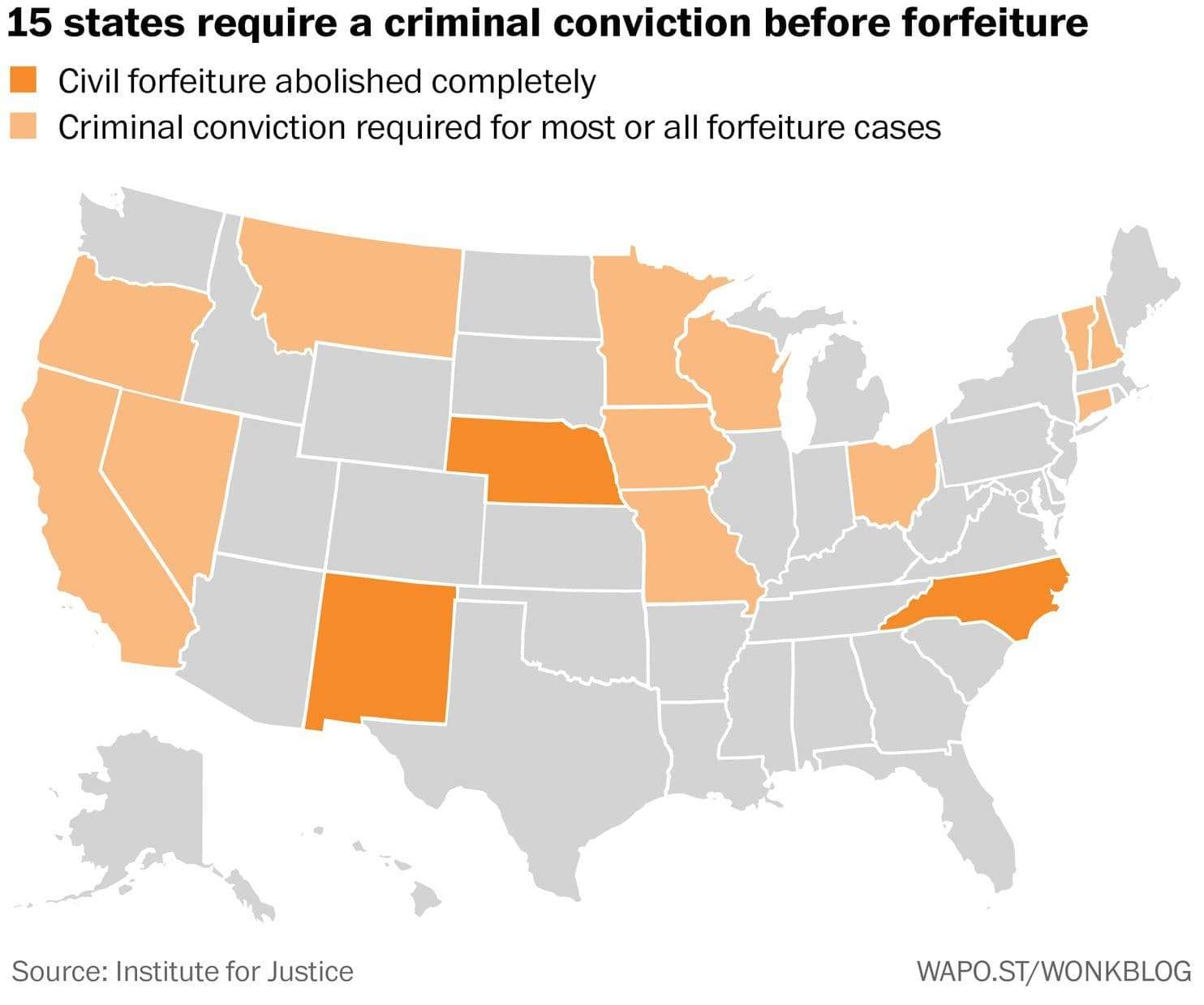Wisconsin Gov. Scott Walker (R) signed into law a forfeiture reform bill last week that will require law enforcement officials to obtain a criminal conviction before permanently taking a person's cash or property, making Wisconsin the 15th state to do so.
The law is intended to address the controversial practice of civil asset forfeiture, a common legal maneuver that allows police to seize and keep cash, real estate and other property from people suspected of criminal activity, regardless of whether those people are convicted.
Defenders of civil forfeiture, including Attorney General Jeff Sessions, maintain that it's a valuable law enforcement tool that allows authorities to seize the ill-gotten gains of criminals who are difficult to apprehend and convict, such as the leaders of international drug cartels.
But the reality of forfeiture is often very different. A Washington Post investigation revealed that police officers routinely seize small amounts of cash during traffic stops under flimsy pretenses. Civil liberties groups have found that forfeiture actions tend to target minority neighborhoods and involve amounts of cash that are “pocket change.”
In most states and at the federal level, authorities are allowed to keep whatever they seize from suspects, regardless of whether a criminal conviction is obtained or whether a charge is filed. Reform groups such as the Institute for Justice contend that this creates a profit motive that encourages law enforcement agencies to seize cash and property to pad their budgets.
Nationwide, forfeiture actions amount to a huge transfer of property and wealth from private people to government agencies. At the federal level alone, asset seizures topped $5 billion in 2014, greater than the amount of property lost to burglary. The inspector general of the Justice Department last year found that since 2007, the Drug Enforcement Administration alone took more than $3 billion in cash from people who were never charged.
Reports like these have inspired legislative changes in a number of states, most recently Wisconsin. The bill Walker signed shifts the burden of proof in forfeiture cases to the state, instead of requiring suspects to prove their innocence. The government can permanently forfeit property only if a person is tried and convicted in criminal court.
But the Institute for Justice notes that several significant loopholes remain in the new legislation. If the property owner doesn't challenge the forfeiture in court, for instance, after a waiting period of nine months, law enforcement officials can permanently seize it, regardless of whether a conviction is obtained.
“In many forfeiture cases, it often costs more to hire a lawyer to fight for the seized property than what the property itself is actually worth,” legislative analyst Nick Sibilla wrote in a statement. “That forces many property owners to walk away and abandon their property, even in states that enacted reforms.”
According to Lee McGrath, the institute's senior legislative counsel, Minnesota enacted a similar law in 2014. “But even after reform [in Minnesota], over 95 percent of civil forfeitures do not involve a criminal conviction, precisely because the owner either could not or did not challenge the forfeiture case in civil court,” McGrath wrote.
The bill also lets law enforcement officials keep property taken from people who “fled the jurisdiction,” which could create difficulties for out-of-state motorists traveling the state's highways.
A number of other states are considering forfeiture reform actions this legislative term, including a significant bill in Minnesota that would abolish civil forfeiture entirely. At the federal level, a number of bipartisan reform bills have been introduced but remain stuck in committee.
Polls have found that more than 80 percent of Americans oppose civil asset forfeiture, and the platforms of both major political parties have endorsed forfeiture reform. Efforts to undo forfeiture draw on a diverse coalition of support that includes the NAACP, the American Civil Liberties Union and the Charles Koch Institute.
But one steadfast supporter of the practice remains Sessions, who last year took steps to expand the practice at the federal level. An effort to undo that expansion recently fizzled out in Congress.

AncientCodpiece on April 6th, 2018 at 17:37 UTC »
That's nice, it is pretty silly how we have to pay to prove our innocence. And the inability to pay creates a situation in which you are now guilty of late payment. Ludicrous
CCCmonster on April 6th, 2018 at 17:12 UTC »
Civil forfeiture laws without criminal conviction is pure evil
tidepodchef on April 6th, 2018 at 17:08 UTC »
should be a federal law